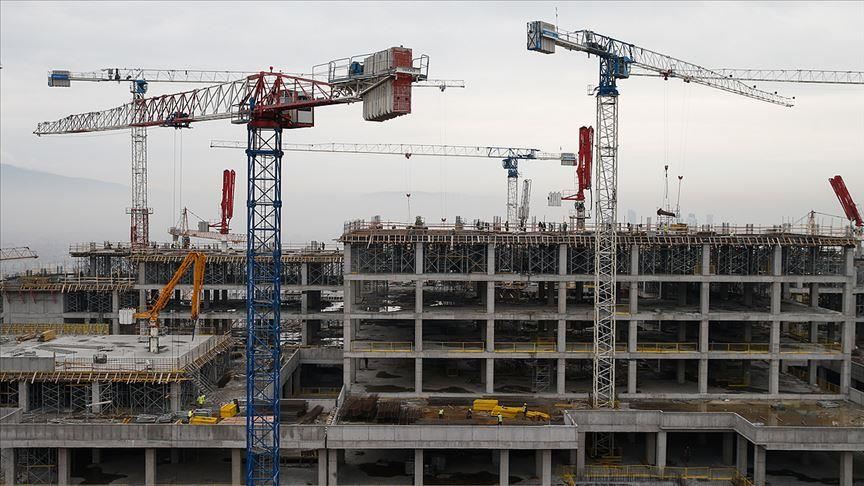According to Allianz Trade’s Global Insolvency Report, global commercial insolvencies are projected to increase by 11% this year. In Türkiye, the situation appears even more dire, with the report forecasting a 20% rise in insolvency rates by 2024.
The report attributes this trend to high financing costs and a slowdown in the economy, factors that have placed the country’s businesses in a precarious position.
Commercial bankruptcy to continue increasing until 2026
Allianz Trade revised its Global Insolvency Report for 2024, predicting that global insolvencies will rise by 11%, up from the 9% increase anticipated in February. While the earlier report suggested the global economy would stabilize by 2025, the updated report paints a bleaker picture, projecting the average insolvency rate to climb to 13%.
The report highlights that insolvency rates are expected to rise by double digits in many countries, which together account for more than half of the global gross domestic product (GDP). Factors such as sluggish demand, geopolitical uncertainties and unstable financing conditions were cited as key drivers behind the increase.
Post-pandemic and energy crisis fallout hits global markets
Allianz Trade’s report emphasizes that the end of government support during the pandemic and the energy crisis has led to a surge in delayed insolvencies across numerous countries.
Türkiye, in particular, has been identified as one of the nations struggling with high financing costs and a sluggish economy. With a predicted insolvency rate of 20%, the report warns that the ramifications for both businesses and workers could be severe.
Global insights: Allianz Trade CEO highlights ongoing challenges
Allianz Trade CEO Aylin Somersan Coqui shed light on the global insolvency trend, attributing it partly to persistent global demand issues, ongoing geopolitical uncertainties and unstable financing conditions.
“The removal of support mechanisms that protected companies during the pandemic and energy crisis has exposed a backlog of bankruptcies. Many countries, which together represent over half of global GDP, will experience double-digit increases in insolvency rates in 2024.
In economies accounting for two-thirds of global GDP, bankruptcy levels are expected to surpass pre-pandemic levels this year,” Coqui stated. She also pointed out that construction, retail, and services were the hardest-hit sectors in terms of both the number and scale of insolvencies.

Construction, retail and services face highest risk
The report identifies the construction, retail and services sectors as the most vulnerable to insolvency, with companies in these industries expected to bear the brunt of the crisis.
Despite potential relief from possible interest rate cuts, the report indicates that these adjustments may not be sufficient to address the core financial issues burdening companies. While bankruptcies are expected to continue rising through 2025, the report suggests a gradual stabilization starting in 2026.
Industrial downturn hits employment in Türkiye
A key indicator of economic performance, industrial production in Türkiye, has seen a decline, triggering more business insolvencies. The implementation of tight monetary policies to combat high inflation, under the guidance of Treasury and Finance Minister Mehmet Simsek, has further highlighted the slowdown.
The Turkish Statistical Institute (TurkStat) reported a 1.6% month-on-month drop in industrial production for August, with a year-on-year contraction of 5.3%, marking the largest decline since the Feb. 6 earthquakes earlier in 2023. The manufacturing sector, in particular, saw a year-on-year shrinkage of 5.4%.
PMI shows continued deterioration in manufacturing
The Istanbul Chamber of Industry (ISO) Türkiye Manufacturing PMI Report revealed that business conditions have been deteriorating for six consecutive months. The PMI dropped from 47.8 in August to 44.3 in September, the sharpest decline since May 2020 during the pandemic.
Manufacturers cited lower workloads and rising costs as key reasons for the slowdown. This downturn also led to a reduction in employment, with the most significant job losses reported in the textile sector. Employment fell for the eighth consecutive month, marking the steepest decline since April 2020. Notably, for the first time in nearly six years, all 10 monitored sectors recorded a drop in employment.

Inflation outpaces industrial revenue growth
The poor performance in the industrial sector has also impacted revenues. According to the latest revenue index data from TurkStat, the combined revenue index for the industrial, construction, trade and service sectors rose by 41.8% year-on-year in August.
However, the industrial sector’s revenue index increased by only 26.7% during the same period. With consumer inflation (TUFE) at 51.97% for August, it is evident that the growth in industrial revenue fell significantly below inflation levels, highlighting ongoing challenges for businesses in Türkiye.
Expert insight: Interest rate cuts may provide limited relief
Allianz Trade’s Chief Analyst, Maxime Lemerle, noted that while lower interest rates could help improve profit margins, they may not be enough to stem the overall rise in bankruptcies. “Interest rate cuts may offer some relief, but they will not address the root financial issues affecting many companies,” he stated.
The Allianz Trade Global Insolvency Report highlights a challenging economic landscape, with commercial bankruptcies set to rise across the globe, particularly in Türkiye.
High financing costs, economic slowdown, and the end of pandemic-era support have created a perfect storm for businesses, especially in sectors like construction, retail, and services. While potential interest rate cuts may provide temporary relief, they are unlikely to resolve the underlying financial struggles faced by many companies.
